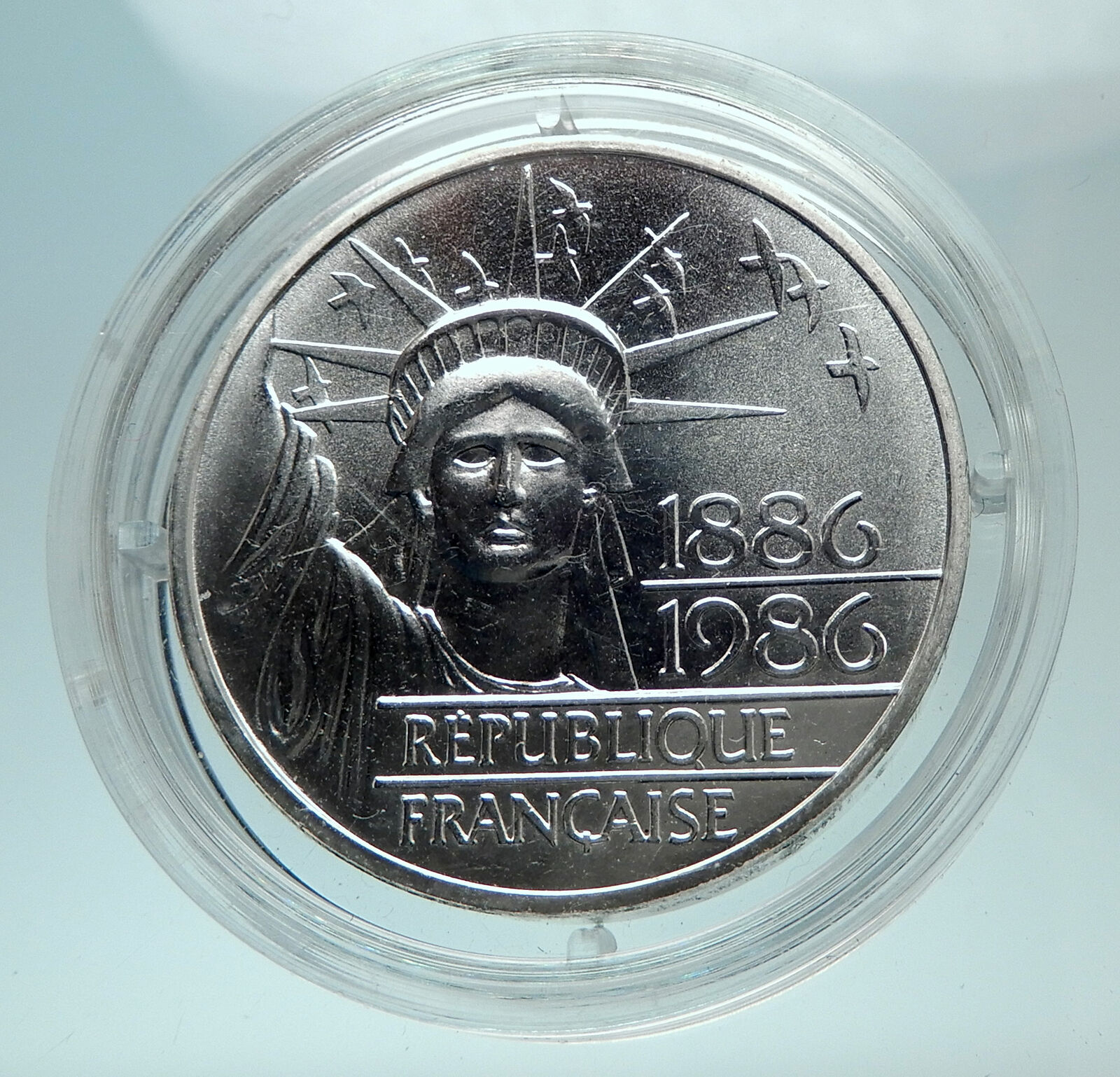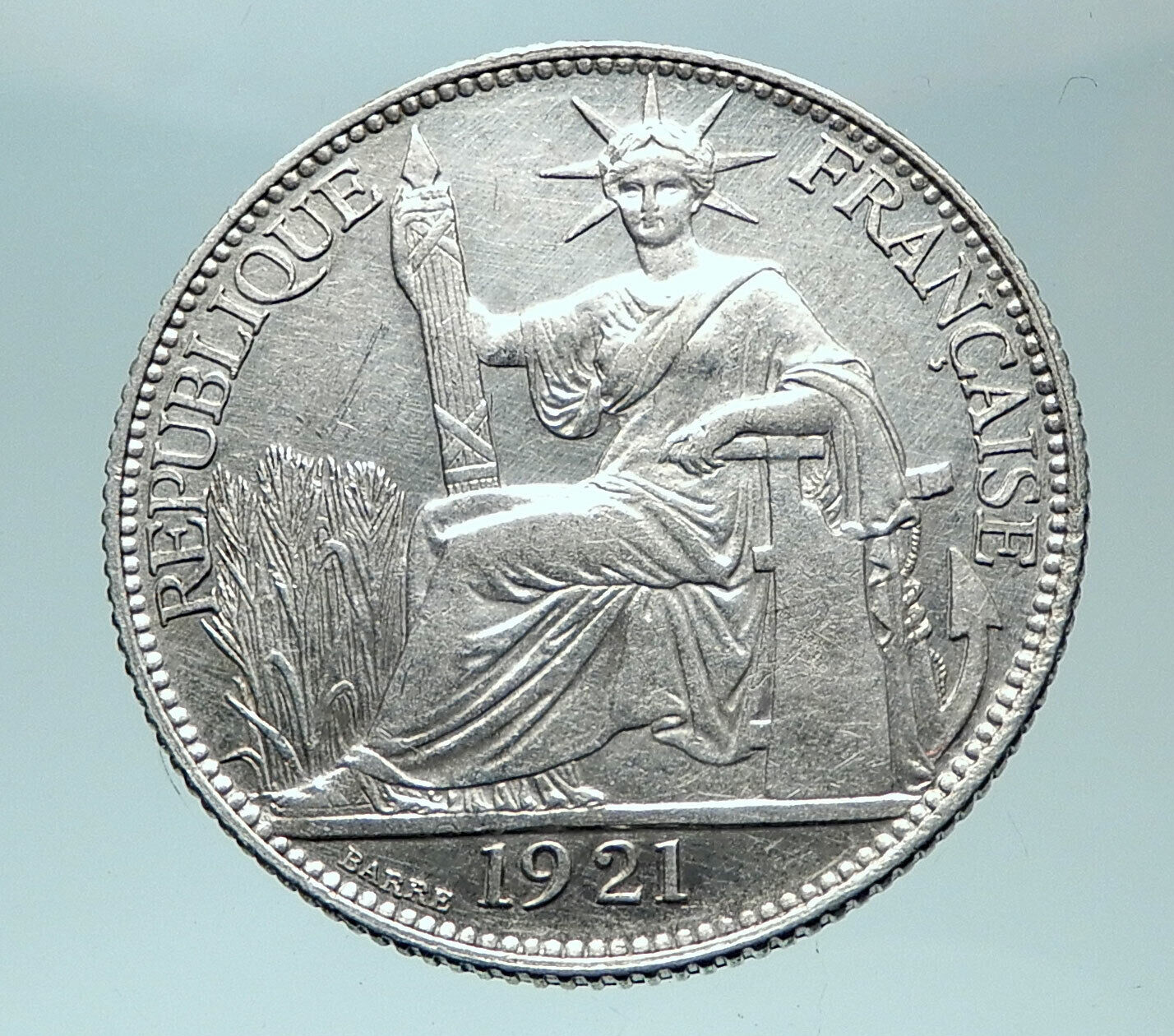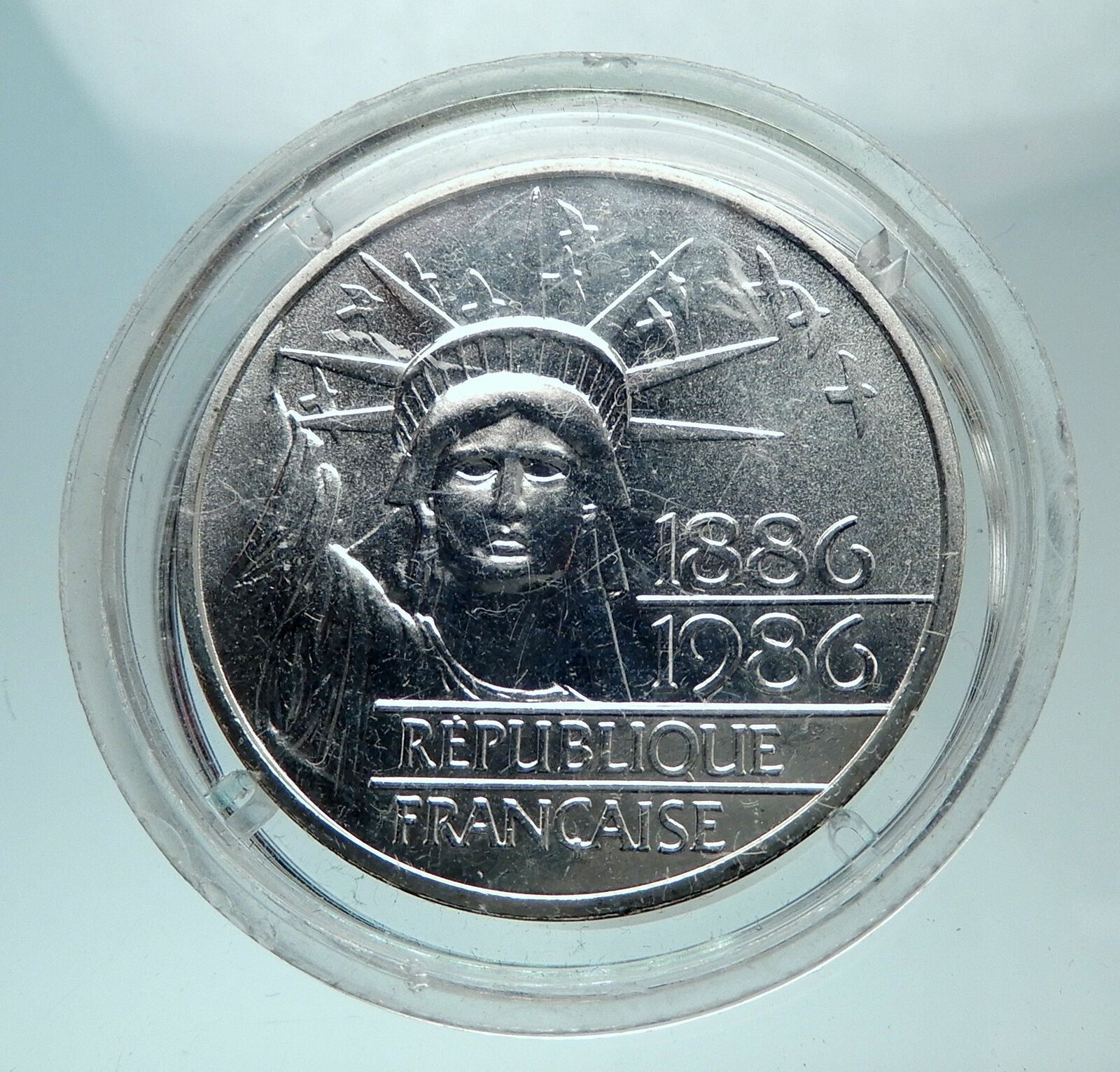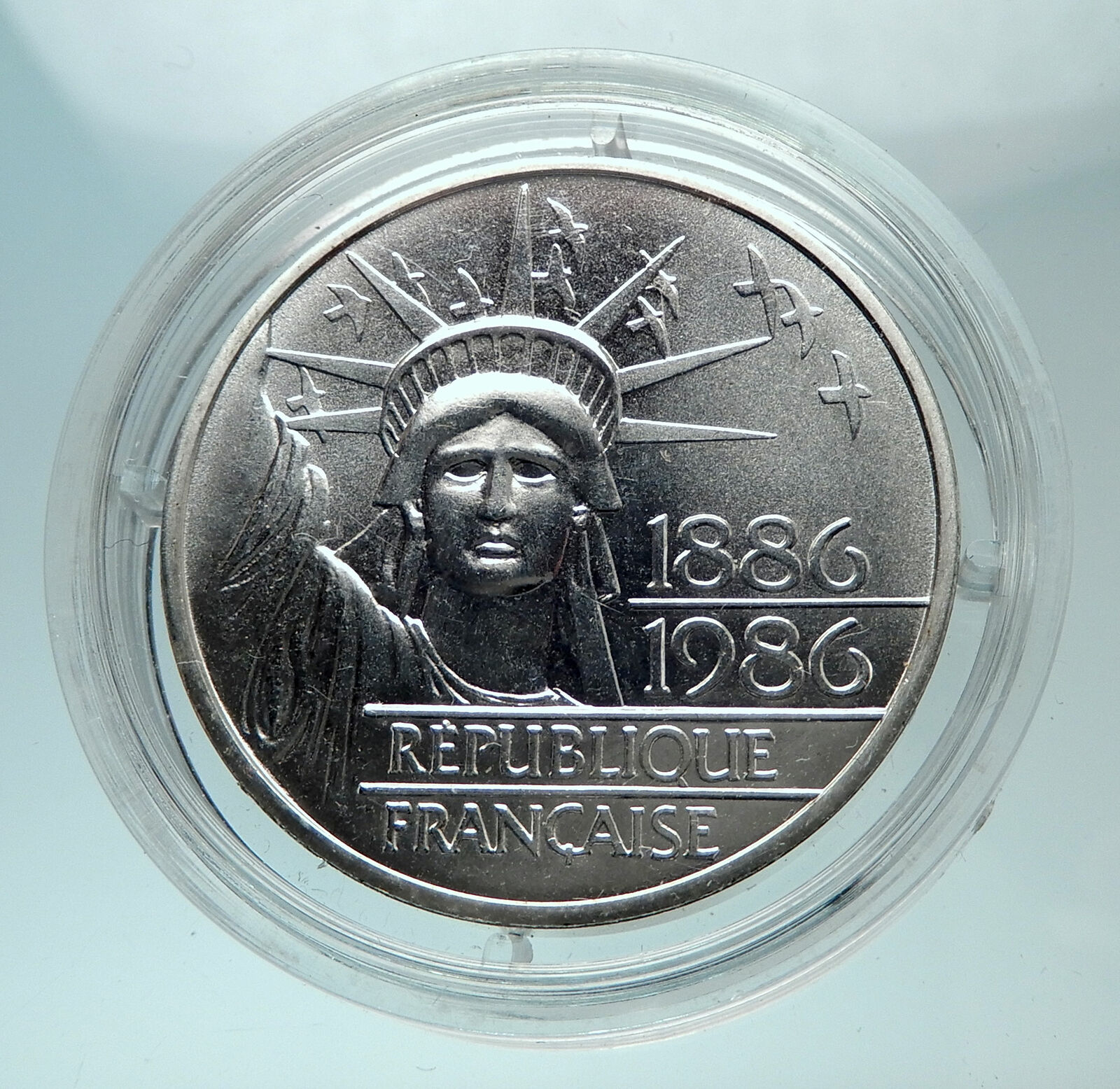|
France under Louis XVI – King: 10 May 1774 – 4 September 1791 A.D.
1791 B Copper 12 Denier 28mm (10.75 grams)
Reference: Dy# 1723a, Gad# 13, KM# 601 | Engraver: Pierre-Benjamin Duvivier
LOUIS XVI ROI DES FRANÇAIS· BB, King Louis facing left.
LA NATION LA LOI LE ROI 12 D. 1792·4· DE LA LIB, Oak crown licteurs beam in the middle.
You are bidding on the exact item pictured, provided with a Certificate of Authenticity and Lifetime Guarantee of Authenticity.
,_revêtu_du_grand_costume_royal_en_1779_-_Google_Art_Project.jpg/220px-Antoine-François_Callet_-_Louis_XVI,_roi_de_France_et_de_Navarre_(1754-1793),_revêtu_du_grand_costume_royal_en_1779_-_Google_Art_Project.jpg) Louis XVI (August 1754 – 21 January 1793), born Louis-Auguste, was the last King of France before the fall of the monarchy during the French Revolution. He was referred to as Citizen Louis Capet during the final weeks of his life. In 1765, at the death of his father, Louis, son and heir apparent of Louis XV, Louis-Auguste became the new Dauphin of France. Upon his grandfather’s death on 10 May 1774, he assumed the title “King of France and Navarre”, which he used until 4 September 1791, when he received the title of “King of the French” until the monarchy was abolished on 21 September 1792. Louis XVI was guillotined on 21 January 1793. Louis XVI (August 1754 – 21 January 1793), born Louis-Auguste, was the last King of France before the fall of the monarchy during the French Revolution. He was referred to as Citizen Louis Capet during the final weeks of his life. In 1765, at the death of his father, Louis, son and heir apparent of Louis XV, Louis-Auguste became the new Dauphin of France. Upon his grandfather’s death on 10 May 1774, he assumed the title “King of France and Navarre”, which he used until 4 September 1791, when he received the title of “King of the French” until the monarchy was abolished on 21 September 1792. Louis XVI was guillotined on 21 January 1793.
The first part of his reign was marked by attempts to reform France in accordance with Enlightenment ideas. These included efforts to abolish serfdom, remove the taille, and increase tolerance toward non-Catholics. The French nobility reacted to the proposed reforms with hostility, and successfully opposed their implementation. Louis implemented deregulation of the grain market, advocated by his liberal minister Turgot, but it resulted in an increase in bread prices. In periods of bad harvests, it would lead to food scarcity which would prompt the masses to revolt. From 1776, Louis XVI actively supported the North American colonists, who were seeking their independence from Great Britain, which was realised in the 1783 Treaty of Paris.
The ensuing debt and financial crisis contributed to the unpopularity of the Ancien Régime. This led to the convening of the Estates-General of 1789. Discontent among the members of France’s middle and lower classes resulted in strengthened opposition to the French aristocracy and to the absolute monarchy, of which Louis and his wife, Queen Marie Antoinette, were viewed as representatives. Increasing tensions and violence marked by events such as the storming of the Bastille during which riots in Paris forced Louis to definitively recognize the legislative authority of the National Assembly.
Louis’s indecisiveness and conservatism led some elements of the people of France to view him as a symbol of the perceived tyranny of the Ancien Régime, and his popularity deteriorated progressively. His disastrous flight to Varennes in June 1791, four months before the constitutional monarchy was declared, seemed to justify the rumors that the king tied his hopes of political salvation to the prospects of foreign invasion. The credibility of the king was deeply undermined, and the abolition of the monarchy and the establishment of a republic became an ever-increasing possibility. Despite his lack of popular approbation, Louis XVI did abolish the death penalty for deserters, as well as the labor tax, which had compelled the French lower classes to spend two weeks out of the year working on buildings and roads.
In a context of civil and international war, Louis XVI was suspended and arrested at the time of the insurrection of 10 August 1792; one month later, the constitutional monarchy was abolished; the First French Republic was proclaimed on 21 September 1792. He was tried by the National Convention (self-instituted as a tribunal for the occasion), found guilty of high treason, and executed by guillotine on 21 January 1793, as a desacralized French citizen under the name of “Citizen Louis Capet”, in reference to Hugh Capet, the founder of the Capetian dynasty – which the revolutionaries interpreted as Louis’ family name. Louis XVI was the only King of France ever to be executed, and his death brought an end to more than a thousand years of continuous French monarchy.
  France, officially the French Republic (French: République française), is a sovereign state comprising territory in western Europe and several overseas regions and territories. The European part of France, called Metropolitan France, extends from the Mediterranean Sea to the English Channel and the North Sea, and from the Rhine to the Atlantic Ocean. France spans 640,679 square kilometres (247,368 sq mi) and has a total population of 67 million. It is a unitary semi-presidential republic with the capital in Paris, the country’s largest city and main cultural and commercial centre. The Constitution of France establishes the state as secular and democratic, with its sovereignty derived from the people. France, officially the French Republic (French: République française), is a sovereign state comprising territory in western Europe and several overseas regions and territories. The European part of France, called Metropolitan France, extends from the Mediterranean Sea to the English Channel and the North Sea, and from the Rhine to the Atlantic Ocean. France spans 640,679 square kilometres (247,368 sq mi) and has a total population of 67 million. It is a unitary semi-presidential republic with the capital in Paris, the country’s largest city and main cultural and commercial centre. The Constitution of France establishes the state as secular and democratic, with its sovereignty derived from the people.
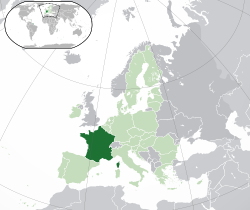
During the Iron Age, what is now Metropolitan France was inhabited by the Gauls, a Celtic people. The Gauls were conquered in 51 BC by the Roman Empire, which held Gaul until 486. The Gallo-Romans faced raids and migration from the Germanic Franks, who dominated the region for hundreds of years, eventually creating the medieval Kingdom of France. France emerged as a major European power in the Late Middle Ages, with its victory in the Hundred Years’ War (1337 to 1453) strengthening French state-building and paving the way for a future centralized absolute monarchy. During the Renaissance, France experienced a vast cultural development and established the beginning of a global colonial empire. The 16th century was dominated by religious civil wars between Catholics and Protestants (Huguenots).
France became Europe’s dominant cultural, political, and military power under Louis XIV. French philosophers played a key role in the Age of Enlightenment during the 18th century. In 1778, France became the first and the main ally of the new United States in the American Revolutionary War. In the late 18th century, the absolute monarchy was overthrown in the French Revolution. Among its legacies was the Declaration of the Rights of Man and of the Citizen, one of the earliest documents on human rights, which expresses the nation’s ideals to this day. France became one of modern history’s earliest republics until Napoleon took power and launched the First French Empire in 1804. Fighting against a complex set of coalitions during the Napoleonic Wars, he dominated European affairs for over a decade and had a long-lasting impact on Western culture. Following the collapse of the Empire, France endured a tumultuous succession of governments: the monarchy was restored, it was replaced in 1830 by a constitutional monarchy, then briefly by a Second Republic, and then by a Second Empire, until a more lasting French Third Republic was established in 1870. By the 1905 law, France adopted a strict form of secularism, called laïcité, which has become an important federative principle in the modern French society.
France reached its territorial height during the 19th and early 20th centuries, when it ultimately possessed the second-largest colonial empire in the world. In World War I, France was one of the main winners as part of the Triple Entente alliance fighting against the Central Powers. France was also one of the Allied Powers in World War II, but came under occupation by the Axis Powers in 1940. Following liberation in 1944, a Fourth Republic was established and later dissolved in the course of the Algerian War. The Fifth Republic, led by Charles de Gaulle, was formed in 1958 and remains to this day. Following World War II, most of the empire became decolonized.
Throughout its long history, France has been a leading global center of culture, making significant contributions to art, science, and philosophy. It hosts Europe’s third-largest number of cultural UNESCO World Heritage Sites (after Italy and Spain) and receives around 83 million foreign tourists annually, the most of any country in the world. France remains a great power with significant cultural, economic, military, and political influence. It is a developed country with the world’s sixth-largest economy by nominal GDP and eight-largest by purchasing power parity. According to Credit Suisse, France is the fourth wealthiest nation in the world in terms of aggregate household wealth. It also possesses the world’s second-largest exclusive economic zone (EEZ), covering 11,035,000 square kilometres (4,261,000 sq mi).
French citizens enjoy a high standard of living, and the country performs well in international rankings of education, health care, life expectancy, civil liberties, and human development. France is a founding member of the United Nations, where it serves as one of the five permanent members of the UN Security Council. It is a member of the Group of 7, North Atlantic Treaty Organization (NATO), Organisation for Economic Co-operation and Development (OECD), the World Trade Organization (WTO), and La Francophonie. France is a founding and leading member state of the European Union (EU).
|




,_revêtu_du_grand_costume_royal_en_1779_-_Google_Art_Project.jpg/220px-Antoine-François_Callet_-_Louis_XVI,_roi_de_France_et_de_Navarre_(1754-1793),_revêtu_du_grand_costume_royal_en_1779_-_Google_Art_Project.jpg) Louis XVI (August 1754 – 21 January 1793), born Louis-Auguste, was the last King of France before the fall of the monarchy during the French Revolution. He was referred to as Citizen Louis Capet during the final weeks of his life. In 1765, at the death of his father, Louis, son and heir apparent of Louis XV, Louis-Auguste became the new Dauphin of France. Upon his grandfather’s death on 10 May 1774, he assumed the title “King of France and Navarre”, which he used until 4 September 1791, when he received the title of “King of the French” until the monarchy was abolished on 21 September 1792. Louis XVI was guillotined on 21 January 1793.
Louis XVI (August 1754 – 21 January 1793), born Louis-Auguste, was the last King of France before the fall of the monarchy during the French Revolution. He was referred to as Citizen Louis Capet during the final weeks of his life. In 1765, at the death of his father, Louis, son and heir apparent of Louis XV, Louis-Auguste became the new Dauphin of France. Upon his grandfather’s death on 10 May 1774, he assumed the title “King of France and Navarre”, which he used until 4 September 1791, when he received the title of “King of the French” until the monarchy was abolished on 21 September 1792. Louis XVI was guillotined on 21 January 1793.
 France, officially the French Republic (French: République française), is a sovereign state comprising territory in western Europe and several overseas regions and territories. The European part of France, called Metropolitan France, extends from the Mediterranean Sea to the English Channel and the North Sea, and from the Rhine to the Atlantic Ocean. France spans 640,679 square kilometres (247,368 sq mi) and has a total population of 67 million. It is a unitary semi-presidential republic with the capital in Paris, the country’s largest city and main cultural and commercial centre. The Constitution of France establishes the state as secular and democratic, with its sovereignty derived from the people.
France, officially the French Republic (French: République française), is a sovereign state comprising territory in western Europe and several overseas regions and territories. The European part of France, called Metropolitan France, extends from the Mediterranean Sea to the English Channel and the North Sea, and from the Rhine to the Atlantic Ocean. France spans 640,679 square kilometres (247,368 sq mi) and has a total population of 67 million. It is a unitary semi-presidential republic with the capital in Paris, the country’s largest city and main cultural and commercial centre. The Constitution of France establishes the state as secular and democratic, with its sovereignty derived from the people.


